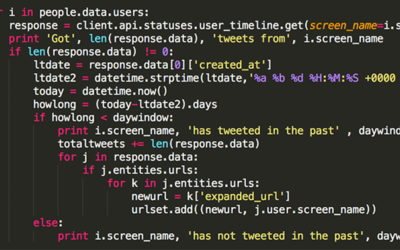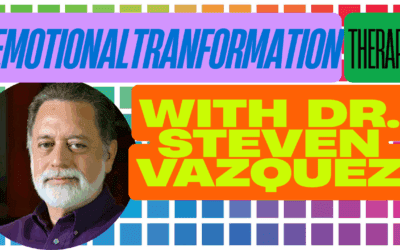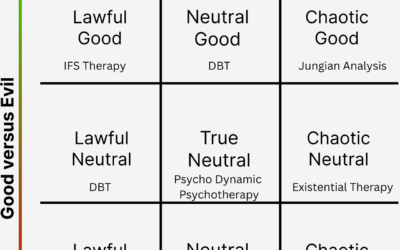
Who Was Neil Postman?
Neil Postman (1931-2003) was an American media theorist, cultural critic, and educator whose work profoundly influenced our understanding of the relationship between media, technology, and culture. His incisive critiques of television, education, and the information age continue to resonate in today’s digital landscape. This paper explores Postman’s life, key ideas, and enduring legacy, examining the relevance of his thought to fields such as psychology, education, and media studies.
II. Biography of Neil Postman
Neil Postman was born on March 8, 1931, in New York City. He grew up in a working-class Jewish family in Brooklyn, an experience that would shape his perspective on education and social issues. Postman attended the State University of New York at Fredonia, where he earned his bachelor’s degree in 1953. He then pursued graduate studies at Teachers College, Columbia University, receiving his master’s degree in 1955 and his Ed.D in 1958.
Postman’s academic career began at San Francisco State College, where he taught from 1958 to 1959. In 1959, he returned to New York to join the faculty at New York University (NYU). At NYU, Postman would spend the remainder of his career, eventually becoming the Paulette Goddard Chair of Media Ecology in the Steinhardt School of Education.
Throughout his career, Postman was a prolific writer and speaker, authoring more than 20 books and numerous articles. He gained widespread recognition with the publication of “Teaching as a Subversive Activity” (1969), co-authored with Charles Weingartner. However, it was his 1985 book “Amusing Ourselves to Death: Public Discourse in the Age of Show Business” that cemented his reputation as a leading cultural critic.
Postman’s work extended beyond academia. He was a regular contributor to popular publications and appeared frequently on television and radio programs. He also founded the Program in Media Ecology at NYU in 1971, establishing a new field of study that examined the effects of communication technologies on human perception and culture.
Neil Postman passed away on October 5, 2003, leaving behind a rich intellectual legacy that continues to inform debates about media, technology, and education in the 21st century.
III. Overview of Key Ideas
At the core of Postman’s philosophy is a deep concern with the ways in which media and technology shape human consciousness, culture, and social institutions. His work is characterized by a critical examination of the unintended consequences of technological progress, particularly in the realms of education and public discourse.
The Medium is the Metaphor
Building on Marshall McLuhan’s famous dictum “the medium is the message,” Postman argued that each medium of communication implies a unique way of thinking and understanding the world. In “Amusing Ourselves to Death,” he writes:
“Our languages are our media. Our media are our metaphors. Our metaphors create the content of our culture.”
This idea suggests that the dominant media of a culture profoundly influence not just what we think about, but how we think. For Postman, the shift from a print-based culture to a television-based culture represented a fundamental transformation in the nature of public discourse and cultural values.
The Decline of Public Discourse
One of Postman’s central concerns was the impact of television on public discourse and critical thinking. He argued that television, with its emphasis on entertainment and visual spectacle, was ill-suited to conveying complex ideas and promoting rational debate. In “Amusing Ourselves to Death,” he warns:
“When a population becomes distracted by trivia, when cultural life is redefined as a perpetual round of entertainments, when serious public conversation becomes a form of baby-talk, when, in short, a people become an audience and their public business a vaudeville act, then a nation finds itself at risk; culture-death is a clear possibility.”
This critique extends beyond television to encompass broader cultural trends towards prioritizing entertainment and instant gratification over serious intellectual engagement.
The Technopoly
In his 1992 book “Technopoly: The Surrender of Culture to Technology,” Postman introduced the concept of “technopoly” to describe a society in which technology is deified and becomes the primary arbiter of truth and value. He writes:
“Technopoly is a state of culture. It is also a state of mind. It consists in the deification of technology, which means that the culture seeks its authorization in technology, finds its satisfactions in technology, and takes its orders from technology.”
This concept encapsulates Postman’s concerns about the uncritical adoption of new technologies and the tendency to view technological solutions as panaceas for complex social and cultural problems.
Education and Critical Thinking
Throughout his career, Postman was deeply concerned with education and the development of critical thinking skills. He argued that the primary purpose of education should be to create “crap detectors” – individuals capable of critically evaluating information and ideas. In “Teaching as a Subversive Activity,” he and Weingartner write:
“The new education has as its purpose the development of a new kind of person, one who – as a result of internalizing a different series of concepts – is an actively inquiring, flexible, creative, innovative, tolerant, liberal personality who can face uncertainty and ambiguity without disorientation.”
This emphasis on critical thinking and inquiry-based learning stands in stark contrast to what Postman saw as the increasingly standardized and technology-driven approach to education in the late 20th century.
IV. Implications for Psychology and Trauma Treatment
Postman’s ideas, while primarily focused on media and culture, have significant implications for the field of psychology, particularly in relation to depth psychology and trauma treatment. His critiques of media and technology offer a unique perspective on the psychological impact of our increasingly mediated existence.
Media Ecology and Psychological Environment
Postman’s concept of media ecology – the study of media as environments – resonates with psychological theories that emphasize the importance of environment in shaping human behavior and cognition. Just as a physical environment can impact mental health, Postman suggests that our media environment profoundly influences our psychological well-being.
In the context of trauma treatment, this perspective invites therapists to consider how the media landscape might be contributing to or exacerbating traumatic experiences. For example, the constant exposure to violent or distressing content through news media and social networks could potentially reinforce traumatic memories or trigger anxiety responses.
Narrative and Meaning-Making in Trauma Treatment
Postman’s emphasis on the importance of narrative and meaning-making in human culture aligns with many approaches to trauma treatment that focus on helping individuals construct coherent narratives of their experiences. In “The End of Education” (1995), Postman writes:
“Without a narrative, life has no meaning. Without meaning, learning has no purpose. Without a purpose, schools are houses of detention, not attention.”
This insight could be applied to trauma treatment, suggesting that helping individuals develop meaningful narratives about their experiences is crucial for healing. Therapists working from this perspective might focus on how different media forms (e.g., writing, art, digital storytelling) can be used as tools for narrative construction and meaning-making in trauma recovery.
Critical Thinking and Cognitive Restructuring
Postman’s advocacy for critical thinking skills as a defense against manipulation and misinformation has parallels in cognitive-behavioral approaches to trauma treatment. Just as Postman encouraged individuals to become “crap detectors,” cognitive therapies often focus on helping clients identify and challenge distorted thought patterns.
In trauma treatment, this approach could involve helping clients critically examine the narratives they’ve constructed about their traumatic experiences, as well as the messages they receive from media and culture about trauma and recovery.
Technology and Human Connection
Postman’s critiques of technology’s impact on human relationships have relevance for attachment-focused approaches to trauma treatment. In “Technopoly,” he warns:
“We are a culture consuming itself with information, and many of us do not even wonder how to control the process. We proceed under the assumption that information is our friend, believing that cultures may suffer grievously from a lack of information, which, of course, they do. It is only now beginning to be understood that cultures may also suffer grievously from information glut, information without meaning, information without control mechanisms.”
This perspective could inform trauma treatment approaches that emphasize the importance of human connection and relational healing, cautioning against over-reliance on technology-mediated forms of therapy at the expense of genuine human interaction.
V. Connections to Depth Psychology and Existential Therapy
Postman’s work, while not directly situated within the field of psychology, shares several important themes with depth psychology and existential therapy. His critiques of modern culture and technology often touch on existential concerns and unconscious cultural dynamics that resonate with these psychological approaches.
Collective Unconscious and Cultural Symbols
Postman’s analysis of media as creators of cultural metaphors and symbols bears some resemblance to Carl Jung’s concept of the collective unconscious. Just as Jung posited that certain symbols and archetypes are universally present in human psyches, Postman argued that media create shared cultural symbols that shape our understanding of the world.
In “Amusing Ourselves to Death,” Postman writes:
“For in the end, he was trying to tell us that what afflicted the people in Brave New World was not that they were laughing instead of thinking, but that they did not know what they were laughing about and why they had stopped thinking.”
This observation about the unconscious influence of media on our thoughts and behaviors aligns with depth psychological perspectives on the power of unconscious cultural forces.
Authenticity and Technological Alienation
Postman’s concerns about the impact of technology on human relationships and self-understanding resonate with existential themes of authenticity and alienation. His critique of the “technopoly” suggests that uncritical adoption of technology can lead to a kind of existential crisis, where individuals lose touch with their authentic selves and genuine human connections.
This perspective aligns with existential therapists like Irvin Yalom, who emphasized the importance of confronting existential givens and cultivating authentic relationships. Postman’s work could be seen as highlighting the ways in which modern media and technology create new challenges for achieving authenticity and meaningful connection.
Meaning-Making and Narrative
Postman’s emphasis on the importance of narrative for creating meaning aligns with existential and depth psychological approaches that focus on the human need for meaning-making. His critiques of education and media often centered on their failure to provide coherent narratives that help individuals make sense of their lives and the world around them.
This perspective resonates with the work of existential therapists like Viktor Frankl, who emphasized the importance of finding meaning in life, even in the face of suffering. Postman’s ideas could be seen as extending this concept to a cultural level, arguing for the need for meaningful cultural narratives in the face of technological change.
VI. Historical Materialism and Cultural Forces
While Postman himself did not explicitly align with Marxist thought, his work can be fruitfully examined through the lens of historical materialism, particularly in its attention to the material conditions (in this case, media technologies) that shape culture and consciousness.
Media as Means of Production
From a historical materialist perspective, Postman’s analysis of media technologies could be seen as an examination of the “means of production” of cultural consciousness. Just as Marx argued that the material conditions of economic production shape social relations and ideology, Postman suggests that the dominant media of a culture profoundly influence its ways of thinking and understanding the world.
In “Technopoly,” Postman writes:
“Technological change is not additive; it is ecological. A new technology does not merely add something; it changes everything.”
This holistic view of technological change aligns with historical materialist approaches that emphasize the interconnectedness of material conditions, social relations, and ideological superstructures.
Resistance to Technological Determinism
Despite his critical stance towards many forms of media technology, Postman resisted simplistic technological determinism. Instead, he advocated for a more nuanced understanding of the relationship between technology and culture, one that recognized human agency and the possibility of resistance.
This perspective aligns with more sophisticated forms of historical materialism that reject crude economic determinism in favor of a dialectical understanding of the relationship between material conditions and human consciousness.
Cultural Hegemony and Media Control
Postman’s critiques of media monopolies and the concentration of control over information channels resonate with neo-Marxist concepts of cultural hegemony. His concerns about the power of media to shape public discourse and cultural values align with critical theorists like Antonio Gramsci, who emphasized the importance of cultural struggle in maintaining or challenging dominant power structures.
In “Amusing Ourselves to Death,” Postman warns:
“Americans no longer talk to each other, they entertain each other. They do not exchange ideas, they exchange images. They do not argue with propositions; they argue with good looks, celebrities and commercials.”
This critique of the superficiality of media discourse could be seen as an analysis of how cultural hegemony is maintained through the trivialization of public discourse.
VII. Relevance to Emerging Trends in Technology and Media
Despite writing primarily in the pre-internet age, many of Postman’s ideas have proven remarkably prescient in light of emerging trends in technology and media. His critiques of television culture in many ways anticipated the challenges and transformations brought about by digital media and the internet.
Information Overload and Attention Economy
Postman’s concerns about information overload and the trivialization of public discourse seem even more relevant in the age of social media and 24/7 news cycles. His warning in “Technopoly” that “information has become a form of garbage, not only incapable of answering the most fundamental human questions but barely useful in providing coherent direction to the solution of even mundane problems” resonates strongly with contemporary debates about fake news, information bubbles, and the attention economy.
Digital Literacy and Critical Thinking
Postman’s emphasis on the need for critical thinking skills and “crap detection” has only grown more urgent in the digital age. His ideas about media literacy and the importance of understanding the biases inherent in different media forms provide a valuable framework for approaching digital literacy education.
Technological Solutionism
Postman’s critique of “technopoly” and the tendency to seek technological solutions for complex social problems anticipates contemporary debates about “technological solutionism.” His skepticism towards uncritical techno-optimism provides a valuable counterpoint to Silicon Valley narratives about technology’s ability to solve all of humanity’s problems.
The Spectacle of Politics
Postman’s analysis of the impact of television on political discourse in “Amusing Ourselves to Death” seems particularly relevant in the age of Twitter politics and reality TV presidents. His warning that “politics, like religion, is a branch of show business in America” anticipates the increasing conflation of entertainment and political engagement in the digital age.
IX. Major Works and Publications
- “Teaching as a Subversive Activity” (1969, with Charles Weingartner)
- “Crazy Talk, Stupid Talk” (1976)
- “Teaching as a Conserving Activity” (1979)
- “The Disappearance of Childhood” (1982)
- “Amusing Ourselves to Death: Public Discourse in the Age of Show Business” (1985)
- “Conscientious Objections: Stirring Up Trouble About Language, Technology and Education” (1988)
- “Technopoly: The Surrender of Culture to Technology” (1992)
- “The End of Education: Redefining the Value of School” (1995)
- “Building a Bridge to the 18th Century: How the Past Can Improve Our Future” (1999)
XV. Postman’s Influence on Media Studies and Communication Theory
Neil Postman’s work has had a profound and lasting impact on the fields of media studies and communication theory. His ideas have shaped the way scholars and practitioners approach the study of media and its effects on society.
Media Ecology
Perhaps Postman’s most significant contribution to media studies was his role in establishing the field of media ecology. Drawing on the work of Marshall McLuhan, Postman developed media ecology as a framework for understanding how media technologies shape human environments. In “The Reformed English Curriculum” (1970), he defined media ecology as:
“The study of media as environments. It is the study of how media of communication affect human perception, understanding, feeling, and value; and how our interaction with media facilitates or impedes our chances of survival.”
This approach has inspired generations of scholars to examine the complex interplay between media technologies, cultural practices, and human cognition.
The Medium is the Message, Revisited
Postman’s work can be seen as an extended meditation on and elaboration of McLuhan’s famous dictum, “the medium is the message.” In “Amusing Ourselves to Death,” Postman writes:
“The medium is the metaphor. Whether we are experiencing the world through the lens of speech or the printed word or the television camera, our media-metaphors classify the world for us, sequence it, frame it, enlarge it, reduce it, color it, argue a case for what the world is like.”
This nuanced understanding of how media shape our perception and understanding of the world has been influential in media studies, communication theory, and cultural studies.
Critical Media Literacy
Postman’s work has been foundational in the development of critical media literacy as both an academic field and an educational practice. His emphasis on the need for individuals to understand and critically engage with the biases and limitations of different media forms has informed curriculum development and pedagogical approaches worldwide.
In “Teaching as a Subversive Activity,” Postman and Weingartner argue:
“The new education has as its purpose the development of a new kind of person, one who – as a result of internalizing a different series of concepts – is an actively inquiring, flexible, creative, innovative, tolerant, liberal personality who can face uncertainty and ambiguity without disorientation.”
This vision of education as a means of developing critical, media-literate citizens continues to inspire educators and media scholars.
XVI. Postman’s Critique of Technology in Education
Postman’s work on education, particularly his critiques of the role of technology in the classroom, remains highly relevant in today’s digital age. His perspectives offer a valuable counterpoint to techno-utopian visions of education.
The Computer as a False God
In “The End of Education” (1995), Postman warns against the uncritical adoption of computers in education:
“There can be no doubt that the computer technology has usefulness. But it is not yet clear what its usefulness is. What is clear is that, as with other technologies, it will create winners and losers, and it is not too early to think about who the losers may be.”
This cautionary stance invites us to consider the unintended consequences of digital technologies in education, including potential impacts on critical thinking, creativity, and social interaction.
The Erosion of Traditional Educational Values
Postman was concerned that the emphasis on technology in education was coming at the expense of more fundamental educational values. In “Technopoly,” he argues:
“What we need to consider about the computer has nothing to do with its efficiency as a teaching tool. We need to know in what ways it is altering our conception of learning, and how, in conjunction with television, it undermines the old idea of school.”
This perspective challenges educators and policymakers to consider how digital technologies might be reshaping the very goals and methods of education.
The Importance of Narrative in Education
Throughout his work, Postman emphasized the importance of coherent narratives in education. In “The End of Education,” he writes:
“Without a narrative, life has no meaning. Without meaning, learning has no purpose. Without a purpose, schools are houses of detention, not attention.”
This insight remains relevant in discussions about curriculum design and educational philosophy, particularly in an age of fragmented digital information.
XVII. Postman’s Relevance to Contemporary Media Landscapes
Many of Postman’s ideas, though developed primarily in response to television culture, have proven remarkably applicable to contemporary digital media environments.
Social Media and the Public Sphere
Postman’s critique of television’s impact on public discourse anticipates many current concerns about social media’s effect on political communication and civic engagement. In “Amusing Ourselves to Death,” he writes:
“When a population becomes distracted by trivia, when cultural life is redefined as a perpetual round of entertainments, when serious public conversation becomes a form of baby-talk, when, in short, a people become an audience and their public business a vaudeville act, then a nation finds itself at risk; culture-death is a clear possibility.”
This warning resonates strongly in an age of Twitter politics and viral misinformation.
The Attention Economy
Postman’s analysis of how different media forms structure our attention and cognition provides a useful framework for understanding the contemporary attention economy. His critique of the “Now… this” structure of television news, where disparate pieces of information are presented without context or continuity, anticipates the cognitive challenges posed by social media feeds and clickbait headlines.
Information Overload and Digital Overwhelm
Postman’s concerns about information overload, articulated in “Technopoly,” seem even more pressing in the age of big data and ubiquitous digital connectivity:
“Information has become a form of garbage, not only incapable of answering the most fundamental human questions but barely useful in providing coherent direction to the solution of even mundane problems.”
This perspective offers a valuable counterpoint to uncritical celebrations of the information age, inviting us to consider the psychological and social costs of constant connectivity and information abundance.
XVIII. Postman’s Ideas in Relation to Trauma and Psychological Well-being
While Postman did not directly address issues of trauma and psychological well-being, his ideas about media, technology, and culture have significant implications for understanding these topics in the modern world.
Media Exposure and Vicarious Trauma
Postman’s critique of television’s tendency to present decontextualized images of suffering and violence can be extended to consider issues of vicarious trauma in the digital age. His work invites us to consider how constant exposure to distressing content through social media and 24/7 news cycles might impact psychological well-being.
Technology and Dissociation
Postman’s concept of “technopoly” and his concerns about the alienating effects of technology suggest a way of understanding modern forms of dissociation. The constant mediation of experience through digital devices could be seen as creating conditions that make it difficult for individuals to be fully present in their immediate environments and relationships.
Narrative Fragmentation and Psychological Coherence
Postman’s emphasis on the importance of coherent narratives for making meaning of the world has implications for understanding psychological well-being. His critique of the fragmented nature of information in modern media environments could be extended to consider how this fragmentation might impact individuals’ ability to construct coherent personal narratives, a process that many psychologists consider crucial for mental health.
XIX. Critiques and Limitations of Postman’s Work
While Postman’s ideas continue to be influential, it’s important to consider some of the critiques and limitations of his work.
Technological Determinism
Despite his nuanced understanding of media effects, Postman has been criticized by some scholars for verging on technological determinism – the idea that technology is the primary driver of social change. While Postman acknowledged the role of human agency, his strong emphasis on the power of media technologies to shape culture sometimes overshadowed other factors.
Nostalgia for Print Culture
Some critics have argued that Postman’s work betrays a nostalgic bias towards print culture, potentially overlooking the positive affordances of new media technologies. His strong defense of the virtues of print literacy and his concerns about the decline of reading could be seen as resistant to the emergence of new forms of literacy and cultural expression.
Limited Engagement with Audience Agency
While Postman provided powerful critiques of media institutions and technologies, his work has been criticized for not fully engaging with the ways in which audiences actively interpret and negotiate media messages. More recent work in media studies has emphasized audience agency and the complex processes of meaning-making that occur in media consumption.
Cultural Specificity
Much of Postman’s analysis focused on American media and culture. While his insights have broad applicability, some critics have pointed out the need to consider how his ideas translate to different cultural contexts and media environments around the world.
The Enduring Relevance of Neil Postman
Neil Postman’s incisive critiques of media, technology, and culture continue to offer valuable insights for navigating our increasingly mediated world. His work challenges us to think deeply about the relationship between our tools of communication and our ways of thinking, feeling, and interacting.
In an age of rapid technological change and information abundance, Postman’s call for critical engagement with media and technology remains as relevant as ever. His emphasis on the importance of coherent narratives, critical thinking, and human values in the face of technological change provides a crucial counterpoint to uncritical techno-utopianism.
As we grapple with the psychological and social implications of social media, artificial intelligence, virtual reality, and other emerging technologies, Postman’s work offers a framework for asking crucial questions about the impact of these technologies on human consciousness, culture, and well-being.
Perhaps most importantly, Postman’s work reminds us of the importance of preserving and cultivating distinctly human capacities in an increasingly technologized world. His vision of education as a means of developing critical, creative, and ethically engaged citizens remains a powerful ideal in the face of increasing pressure to adapt education to the demands of the digital economy.
In the end, Postman’s legacy is not just his critique of specific media forms or technologies, but his insistence on the need for ongoing, thoughtful reflection on the relationship between our tools and our humanity. As we navigate the challenges and opportunities of the digital age, Postman’s work continues to provide valuable guidance, reminding us to approach our technologies not just with skill, but with wisdom.
Digital, Media, and Cultural Theorists and Philosophers
Bernays and The Psychology of Advertising
Claude Shannon and Warren Weaver
The Left and Right Hand Path in Cultural Psychology
X. Bibliography
Primary Sources
Postman, Neil. “Amusing Ourselves to Death: Public Discourse in the Age of Show Business.” Penguin Books, 1985.
Postman, Neil. “Technopoly: The Surrender of Culture to Technology.” Vintage Books, 1993.
Postman, Neil. “The End of Education: Redefining the Value of School.” Vintage Books, 1996.
Postman, Neil. “Building a Bridge to the 18th Century: How the Past Can Improve Our Future.” Vintage Books, 2000.
Postman, Neil and Charles Weingartner. “Teaching as a Subversive Activity.” Delta, 1969.
Secondary Sources
Strate, Lance. “Amazing Ourselves to Death: Neil Postman’s Brave New World Revisited.” Peter Lang, 2014.
Postman, Andrew. “Neil Postman: Defending Human Values in the Age of Technology.” Thesis, 2012.
Gencarelli, Thom. “Neil Postman and the Rise of Media Ecology.” International Journal of McLuhan Studies, 2011.
Nystrom, Christine. “Towards a Science of Media Ecology: The Formulation of Integrated Conceptual Paradigms for the Study of Human Communication Systems.” Dissertation, 1973.


























0 Comments